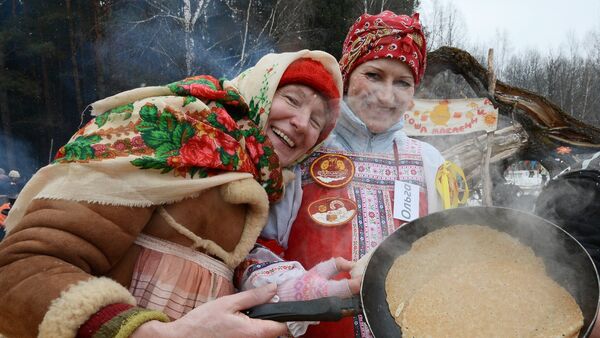The tradition of Maslenitsa dates back to pagan times, when it merely marked the passing of winter and the coming of spring. Now however, Russian Orthodox Christians observe it as the prelude and preparation period before the Great Lent – a lengthy fasting which precedes Easter.
#Maslenitsa starts today in #Russia! Eat #pancakes, visit your #family & enjoy a celebration of the end of winter! pic.twitter.com/7i8oymf1Be
— RussianArt&Culture (@RusArtCulture) 7 марта 2016 г.
Nevertheless, the week often culminates in the burning of an effigy made of straw which symbolizes the departing winter.
#Maslenitsa combines elements of Slavic mythology and Orthodox Christianity. For me, it's an excuse to eat bliny! ;) pic.twitter.com/TlVxf65dEF
— Nina Byzantina (@NinaByzantina) 7 марта 2016 г.
Eating meat during this week is forbidden by religious canon but dairy products are still allowed.
Today is the first day of #Maslenitsa! The perfect excuse to eat pancakes all week!! #масленица pic.twitter.com/mqkEf1m7Qj
— The Russian Student (@RusStudentUK) 7 марта 2016 г.
The most characteristic food of Maslenitsa is 'blini' - thin pancakes or crepes, served virtually all across Russia during the festive week, with people often eating them in great quantities with various toppings.
#Maslenitsa #Масленица
— ДБ им. Н.Ф. Гастелло (@biblioteckanfg5) 7 марта 2016 г.
Понедельник - кушайте блинчики и встречайте Масленицу!
С 7 по 13 марта - Масленая неделя. pic.twitter.com/J1fUnbz27N
Even as the somber Great Lent looms ahead, now it's time to fill up on pancakes and celebrate!


